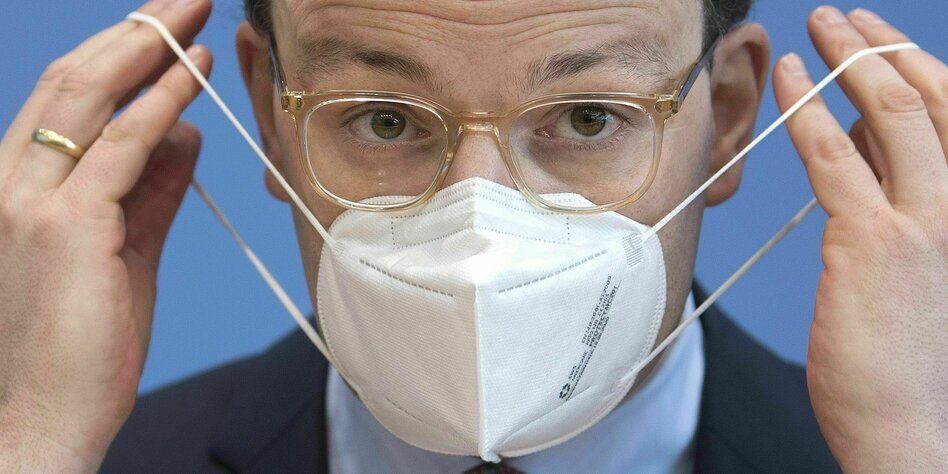Anyone who criticizes Jens Spahn for his management of Corona should not do so without going back in time: to the impotent spring of 2020.

Jens Spahn, the masked man Photo: Stefan Boness/Ipon
It sounds a bit crazy. The federal government could have to pay 2.3 billion euros because Jens Spahn (CDU) promised lunar prices to all mask suppliers in spring 2020. For the masks, of course, which were ultimately not even used. No wonder the current members of the traffic light coalition are trampling hard on the then Minister of Health. And yet this is nothing more than cheap populism. Jens Spahn deserves many thanks for his quick action.
Imagine if a large house was on fire, but the rescuers standing by were helpless. And then someone would come up with the idea that hoses were good because they could be used to spray water on the flames, but that they were in short supply because there had never been a fire before, at least not as violent as there is now, and then the chief of operations would say, sure, get as many hoses as possible, whatever the cost. Everyone would be full of praise.
But that is exactly what Jens Spahn did on March 27, 2020, when he started the so-called open door procedure, according to which anyone who could deliver large quantities of masks should receive 4.50 euros per piece. From today's perspective, where FFP2 masks gather dust on supermarket checkouts for just a few cents, this seems crazy. But at the end of March 2020 the situation was different. Very different.
Back then the coronavirus was still completely new territory. This virus from China had reached Europe: in three weeks the number of infected people registered in Germany had multiplied by 150, from 260 to more than 42,000. The 250th corona death had just been recorded, 55 of them in a single day.
And it was clear that the numbers would continue to rise rapidly, probably as in Italy, where 500 deaths are already being recorded every day. Especially around the city of Bergamo, where three weeks later the iconic photographs of military trucks carrying corpses were taken again.
The clinics quickly reached their capacity limits. “The lucky ones who are allowed to be in the intensive care unit are given nothing but oxygen and, from then on, morphine,” said a report from the Taz in Bergamo.
At least minimal protection
Back then, one could only dream of effective measures against the pandemic. Vaccines only became possible a year later. What remained was a lockdown. And masks. Back then, ordinary mortals sewed a few masks on themselves because there was nothing better anywhere.
And Jens Spahn tried to find more FFP2 masks that actually promised benefits, as opposed to the piece of cloth commonly worn in front of the face. As many as possible. So that at least everyone who had to go out despite the pandemic, for example to keep clinics running, received a minimum of protection. Whatever the cost. No one can or should accuse Jens Spahn of this. Not even from today's perspective, when we know much better.
Yes, mistakes were made in his ministry back then. The price per mask can be criticized. Obviously, the contracts were woven with a fine needle, which leads to costly additional demands today. But in the event of a fire, only one thing can count: having the right equipment to put it out as quickly as possible.
The current dispute over Spahn's agreement on masks also shows how difficult and at the same time overdue it is to reach an agreement in the years of the pandemic. Chancellor Olaf Scholz (SPD) recently proposed setting up citizens' councils for this purpose. That is certainly not a bad thing. It would allow many who did not feel heard in the debate to express their opinion. Those who suffered from the lockdown and the discussions about a possible compulsory vaccination, as well as those who continue to suffer from the most severe post-Covid syndromes to this day.
Without factual knowledge from experts, as the current debate also shows, the review threatens to get bogged down in emotional outrage.
If you look at the facts, it quickly becomes clear what Jens Spahn is actually accused of. In his final months as health minister, in the election campaign ahead of the 2021 federal election, which was already dominated by coronavirus sceptics, Spahn did a lot to downplay the likely rise in case numbers, relying on new indicators. And he refused to hear anything about a national emergency for months.
As a result, another 10,000 people died from coronavirus in Germany in December 2021. This sad Christmas remains unforgivable.
